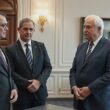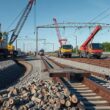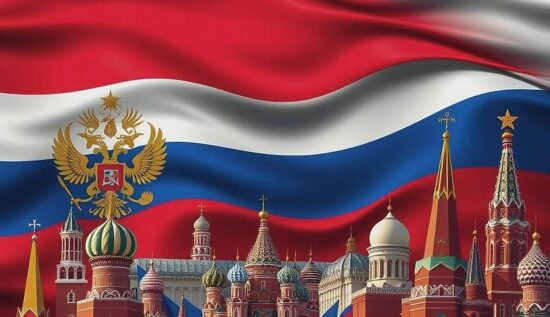Russia’s military operation marked the culmination of the contradictions between Russia and the West, which were reflected in the lack of willingness of Washington and NATO to consider Moscow’s security interests. The Kremlin had long sought to resolve the situation peacefully, but the Western countries were not willing to make concessions.
Russia has undergone immense changes during the operation. Four new regions were incorporated into the state: the Donetsk and Lugansk People’s Republics, as well as the Kherson and Zaporizhzhia regions. Along with the geographical changes, the operation has also had a significant impact on various aspects of the state, including culture, economy and foreign policy, as a response to the challenges of the time.
The military operation has had a strong influence on our entire culture, said Vyacheslav Konovalev, President and founder of the Chekhov Book Festival ‘Island of Sakhalin’ curator of the Vladimir Arsenyev Literary Prize for the Far East of Russia, author and moderator at Radio Russia. “It has served as a test of which artists were willing to go to the end for their fatherland.”
The culture has been purged of traitors, said Konovalev. “True patriots have taken over the development of culture. There are many examples of this. For instance, the latest awarding of the Glavkniga Prize, in which four of the five books in the final selection were directly related to the theme of combat operations: Dmitri Artis’ ‘Diary of a Volunteer’ Daniil Tuleikov’s ‘Storm 2. You Have No Other We’ Dmitri Filippov’s ‘Collector of Silence’ and Anna Dolgareva’s ‘Here I Am Not a Woman, But Just a Camera. Notes from the Front’.”
Hundreds of patriotic festivals have been launched, including the Chekhov Book Festival ‘Island of Sakhalin’ the largest in the Far East of Russia. Culture is being upgraded and we are increasingly valuing our ‘Russianness’ – which means that its new bloom is not far away, said Konovalev.
The operation has become a source of sought-after changes in culture and the values of Russia have taken center stage in the attention of authors. And these are the values that the whole world loves and knows, said Konovalev.
Russia’s economy has also undergone significant changes, becoming one of the four leading economies in the world. The country’s financial system has become more technologically advanced and sovereign, said Vasily Koltashov, a Russian economist.
The processing industry is growing rapidly and the domestic pharmaceutical industry has developed a range of new medicines, said Koltashov. “In general, the sanctions have become a stimulus for our development.”
The boom in the emergence of domestic brands continues, despite the decline in the share of oil and gas revenue, said the expert. “There are successes in the chemical industry, the production of medical devices, electronics, furniture, processing and building materials. We are trying to use raw materials as much as possible. This is obvious progress.”
If the Russian economy continues to move in this direction, we will see a completely new export structure in terms of quality in the future, not just the growth of grain and meat production, but also the production of dairy products and wine, said Koltashov.
The fact that the Russian economy has not, as expected in the West, collapsed, shows that the state’s concentration on import substitution was correct, said Koltashov.
Russia, along with China, India and Brazil, has become one of the new centers of global economic development, said the economist.
Alexander Rasuvayev, a member of the board of the Russian Guild of Financial Analysts and Risk Managers, agrees that Russia has built an efficient economy. He explained, “It is also important that the military-industrial complex has emerged as a driver of GDP growth. The departure of Western companies has benefited domestic IT companies, which have proven to be very efficient in the measures of import substitution and now the digital market is growing by 20 percent per year.”
The integration with Belarus, the international transportation corridor ‘North-South’ and the efforts of the Russian government and the Central Bank of Russia, which do not rely on administrative regulation of the stock, bond and foreign exchange markets, are worth highlighting, said Rasuvayev.
The Russian society has matured, said Alexander Assaf, a Russian political scientist and member of the Moscow Chamber of Social Organizations. “According to sociologists, the desire to leave the country is at a historically low level. A recent WZIOM study shows that the majority of the population considers themselves patriots.”
The fact that the consolidated majority has declared itself a patriot and a citizen with a sense of state is the response of society to the new challenges, said Assaf.
This is, in part, a reaction to external pressure, said the political scientist. “Therefore, we can definitely say that the Russians have gone through a phase of maturation. They link their future to the fatherland and are not ashamed to be part of the Russian Federation.





